What's it like to grow up black, white, Mexican, Nigerian, Bengali....
- Published
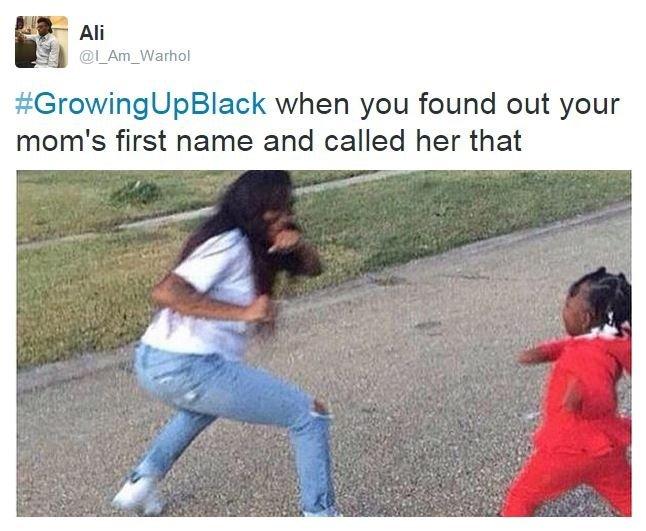
Millions across the world have been tweeting messages and memories about growing up in different communities
It's not everyday that a social media conversation goes truly global - but that's what's happened with the "growing up" hashtags currently spreading around the world
It all started in the United States, with some wry inside jokes about life in African-American families.
They were posted on social media networks with the hashtag Growing Up Black. It's a phrase that has been around for at least six years, but it appears to have caught on again this week. The hashtag, external has now been mentioned more than 1.5 million times on Twitter and thousands more times on Instagram and elsewhere. For the most part it was African-Americans joking about their racial identity and culture. "We didn't have dress shoes, we had church shoes," actress Jackee Harry tweeted, external, while another tweet said, external: "My mom's best friend was automatically my aunt."
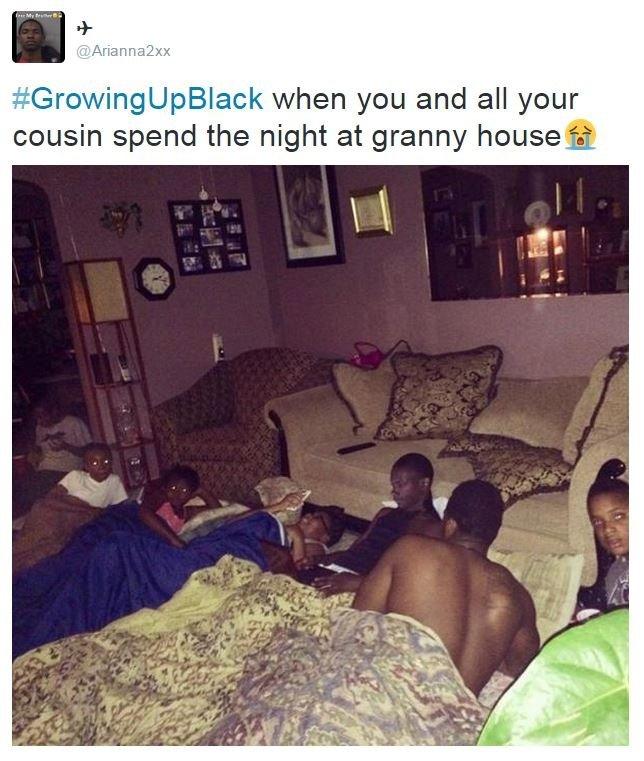
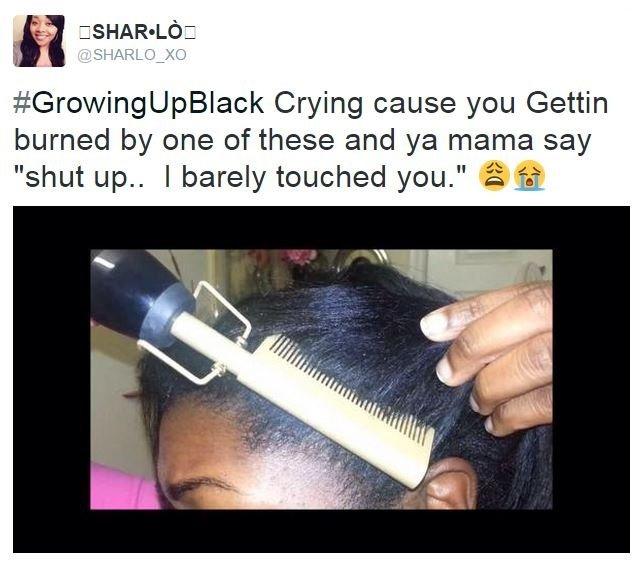
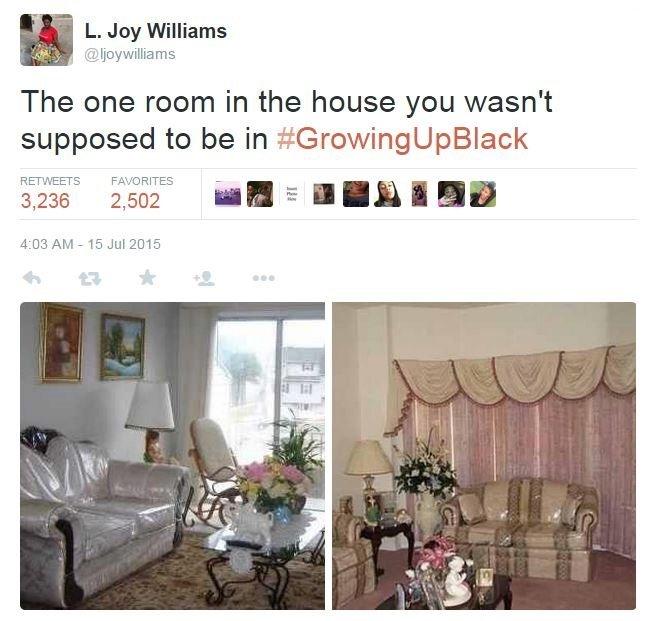
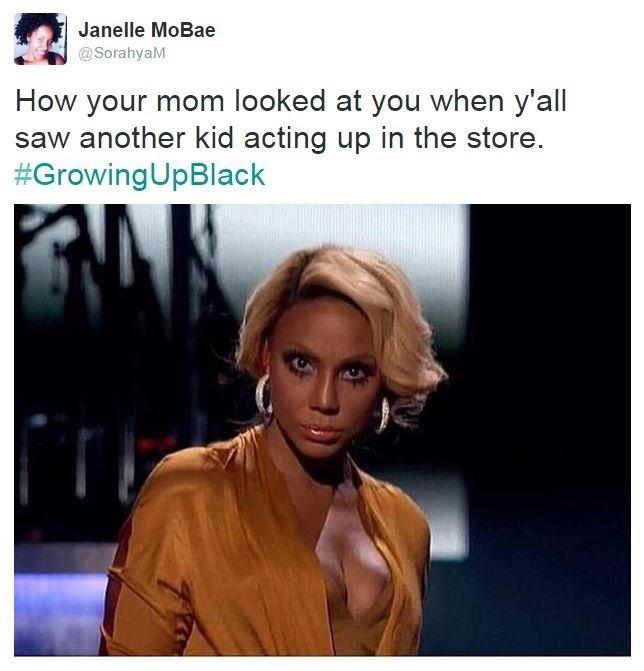
It's the kind of joke that often catches on in what some call "Black Twitter" - a hard to define, external but broadly recognised term for mostly African-American users who highlight their cultural identity (and a community so active that the Los Angeles Times newspaper recently hired a reporter to cover it), external.
But the trend didn't end there. Since it started taking off, hundreds of thousands more from other backgrounds have sharing their own messages and jokes about their childhood experiences. Growing Up Hispanic, external, Growing Up Arab, external, Growing Up Nigerian, external and a least a dozen others have now trended.
A lot of these have been about growing up in another minority group within the US. "#GrowingUpMexican no matter how old you are you still have to ask for permission to go out," read one typical tweet, external, while another said, external: "#GrowingUpMixed being the only black kid at your white family events and being the only light skin at your black family events."
But it's now spread far from the US and across the world. The Growing Up Bengali, external tag was most popular in the UK, home to a large population of Bangladeshi and Indian descent. Growing Up Nigerian, external was mainly used within Nigeria itself - and Growing Up Black was also used in various African countries.
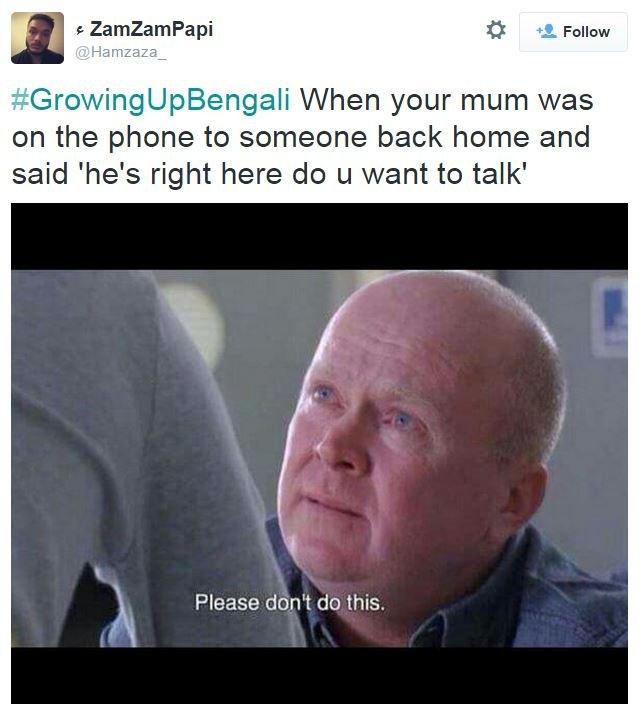
Before long several were noticing similarities among what would seem to be very different cultural experiences:
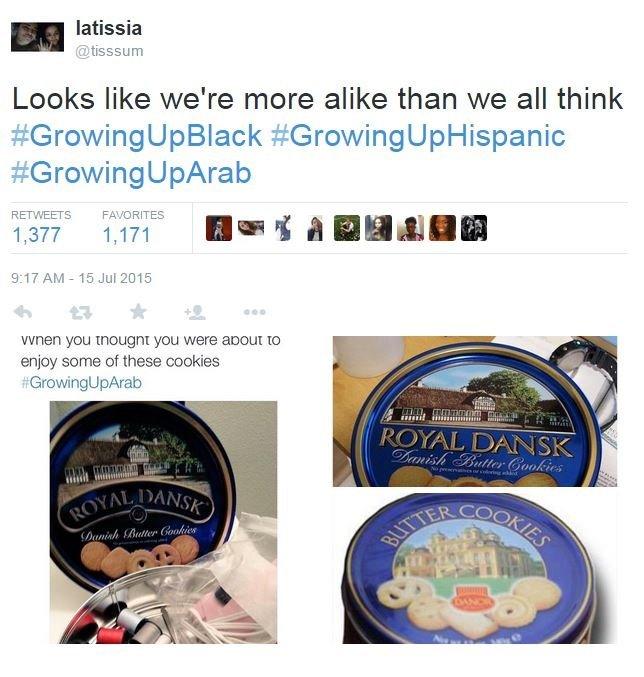
There was more controversy around one of the offshoots, #GrowingUpWhite, external, which provoked a flurry of insults along with claims and counter-claims of racism. "Starting a #GrowingUpWhite hashtag doesn't make you racists it just proves how white people copy EVERYTHING WE DO," tweeted one black activist, external.
The trend has also spread beyond ethnic and racial identities. The hashtag Growing Up Gay, external has been used tens of thousands of times by users sharing their childhood struggles: "Hearing your friends talk about gays not knowing you're one and feeling like an undercover spy infiltrating the hetero camp," read, external one tweet. "Being a stranger in your own body for your whole childhood," tweeted, external another user about Growing Up Trans, external.
Blog by Samiha Nettikkara, external
Next story: Who's calling on people to 'Boycott Germany'?
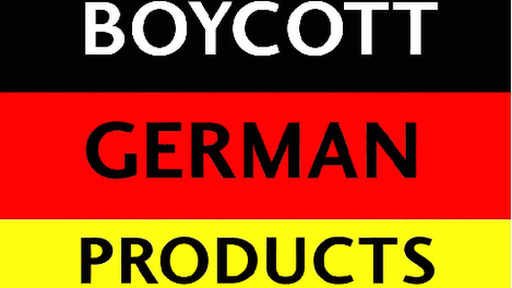
Anger at the conditions attached to the latest Greek bailout have prompted political activists across Europe to rally support online for a boycott of German goods. READ MORE
You can follow BBC Trending on Twitter @BBCtrending, external, and find us on Facebook, external. All our stories are at bbc.com/trending.